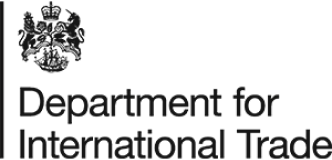Overview
Receiving investment from China presents significant opportunities for UK digital and tech businesses to grow and to improve their reach and expertise, but there are challenges to be aware of.
You may need specialist advice on the legal, commercial and ethical risks when engaging with Chinese entities. This site offers you a starting point to successfully accept investment from China including, the risks you need to be aware of, what you can do to manage them and where to get further advice.
Get
Started
Before accepting investment from China, you might find it helpful to ask yourself the following questions.
Confirming
investment
Do I want to use investment to grow my business, or to fund my expansion into China?
Existing
avenues
Have I discussed the possibility of securing investment from China with existing shareholders, investors and key stakeholders?
Regulatory
requirements
Am I fully aware of regulatory requirements for working with Chinese investors, such as the National Security and Investment Act 2021, anti-money laundering regulations and China’s rules on outbound investment?
Intellectual
property
Have I registered my intellectual property for the China market? This might include filing patents, registering trademarks or obtaining copyright protection.
Due
diligence
Have I conducted due diligence on potential investors?
If you have further questions about receiving investment from China, DIT and China Britain Business Council are available to help.
Due
Diligence
Risk and strategic consulting firm Control Risks have provided the following questions to ask yourself when you are considering working with a Chinese partner.
Control Risks is not the only organisation that provides this service. Control Risks are not endorsed or recommended by HMG. You should research whether this service provider will be suitable. HMG does not accept any liability arising to any person for any loss or damage suffered through using these service providers or this information.
Things to
consider
Before receiving investment from China, you should be aware of the potential commercial risks to your business and how to mitigate them. This will help you protect your assets, data and IP – and ultimately improve your chances of long-term success in China.
Taking legal steps to protect your IP in China is important, but you should also consider your cybersecurity.
In September 2020 the then Foreign Secretary also warned of Chinese global cyber attacks. More information on this and previous announcements can be found here.
In July 2021 the UK joined like-minded partners to confirm Chinese state-backed actors were responsible for gaining access to computer networks via Microsoft Exchange servers.
The UK opposes and defends against the targeted theft of UK knowledge assets and expertise.
Asking yourself the following questions is a good way to start to address potential commercial risks:
Before receiving investment from China, there are a number of UK and Chinese laws you should be aware of. If you fail to adhere to these laws, even inadvertently, you could risk damage to your organisation’s assets and your ability to operate in China.
There are a number of potential pitfalls UK businesses need to avoid when entering the China market, investing in China, or trading with Chinese parties.
For further advice, you can contact CBBC or the IP attaché team in China. Always seeks expert legal advice before setting up in China.
When seeking or considering investment from China, you should consider the ethical implications of engaging with China on emerging technologies.
The UK Government is committed to upholding human rights and has serious concerns regarding the Chinese State’s use of technologies in ways that violate human rights and harm individuals and society. Where China is not meeting its obligations under international law and falls below the standards required and expected of responsible governments and nation states, the UK Government will continue to speak out publicly.
Our concerns include China’s use of facial recognition and predictive computer algorithms for mass surveillance, profiling and repression of ethnic minorities in Xinjiang and elsewhere; automated internet and media surveillance and censorship including in a number of new ‘smart cities’, to expand social control and limit individual freedoms.
While engagement offers many opportunities, there is a risk that your company’s technology could be used to violate human rights, posing a significant risk to your business’s reputation. Businesses engaging in joint research and development activities in the fields of surveillance, biometrics, or tracking technology are at a heightened risk.
In addition, you should be aware of China’s programme of Civil Military Fusion (highlighted below). As well as ensuring that you are abiding by the relevant legal obligations, you may want to consider the possible reputational consequences if your company’s technology contributes to China’s military development.
Asking yourself the following questions may be a good way to start addressing the potential ethical challenges of doing business with China.
Organisations with links to severe human rights abuses, such as those taking place in Xinjiang, face reputational and legal risks.
Though analysis by Verisk Maplecroft suggests that standard due diligence practices are unlikely to be effective in preventing links to human rights violations, companies can take the following steps:
- Align approaches to business policies, strategy, systems, supplier codes of practice, KPIs and training programmes, helping to raise awareness of social and environmental issues;
- Map operations of suppliers and subsidiaries to identify where the most salient risks lie;
- Set up audit programmes for the highest risk areas identified in mapping exercises. You may wish to enlist the assistance of independent, third-party auditors to check your assessments;
- Collaborate with industry peers, suppliers, governments, NGOs and other local partners to share knowledge, good practice and on-the-ground projects.
A good resource to further understand the different types of human rights issues and how they impact your supply chain is the Human Rights & Business Dilemmas Forum produced by Verisk Maplecroft and the UN Global Compact.
Human rights organisations have also suggested the following best practice when conducting due diligence:
- Be transparent about whom you are doing business with, including publishing the names of local partners, suppliers and collaborators. This could include any government agencies, public security bureau-affiliated research laboratories, or military-economic entities.
- Publicly report on human rights due diligence to display that you have a strategy, that you have applied it, and that you have assessed the risks.
Additional
resources
You may find it helpful to contact specialists who offer advice and knowledge on doing business in China. Who can I talk to?

Department for
International Trade (DIT)
The Department for International Trade (DIT) helps businesses export and grow into global markets, as well as helping overseas companies locate and grow in the UK.
DIT’s network of trade advisors across the UK can help create a tailored export growth action plan, advise you on which markets are best for your business and put you in touch with contacts who can help you expand internationally.

China-Britain Business
Council (CBBC)
The China-Britain Business Council (CBBC) is the leading organisation helping UK companies grow and develop their business with China. CBBC provides advice, support and networking opportunities for companies at every stage of their China journey.
Visit CBBC’s website for detailed practical guidance for tech companies on the business environment, setting-up, finding partners, and business risks.

Intellectual Property Office
HMG’s Intellectual Property Office website hosts detailed, cross-sector information on GOV.UK about protecting and enforcing IP when working with China.
A number of factsheets, and an IP attaché team in China which can offer advice on specific issues with registering and enforcing your IP rights in China.

British Chamber of
Commerce in China
British Chamber of Commerce in China is a membership organisation for British businesses focused on boosting UK-China trade and investment. It has chapters in Beijing, Shanghai, Guangzhou and Southwest China, and provides a wide programme of events, publications and industry insights.

Secure Innovation
The Centre for Protection of National Infrastructure (CPNI) and the National Cyber Security Centre (NCSC) are the national technical authorities on physical, people and cyber security. They have created Secure Innovation to help founders and CEOs of emerging technology startups and their investors protect fledgling companies so that they can thrive.
Detailed guidance is available to empower startups and investors with the tools to foster a healthy security culture from the outset and continue to protect vital company assets as businesses scale and collaboration opens up overseas opportunities.

Informed Investment
The Centre for Protection of National Infrastructure (CPNI) and the National Cyber Security Centre (NCSC) are the national technical authorities on physical, people and cyber security. Together with the Department for Business, Energy and Industrial Strategy (BEIS), they have created Informed Investment to help businesses of any size to understand and reduce potential risks related to overseas investment.
Visit CPNI website

NCSC for Startups
NCSC for Startups is the successor to the NCSC Cyber Accelerator, a programme which helped more than 40 tech companies raise in excess of £100m in external investments. The aim is to bring together innovative startups with NCSC technical expertise to solve some of the UK’s most important cyber challenges.
NCSC for Startups offers something for startups at all stages of maturity; from those developing a Minimum Viable Product (MVP), to those with established solutions looking to expand into new markets. There are also opportunities for organisations to get involved with the programme to bring additional support and expertise through:
- Shaping technical challenges to bring a focus to areas of interest
- Working together and directly with startup companies to influence their products
- Providing technical leadership and influence to encourage the growing cyber eco-system
Where can I go to get advice on travelling to China?
The FCDO also provides details and up to date information on doing business in China.
Visit the FCDO website for information on getting a visa, as well as up-to-date travel advice for China – including on coronavirus.
How can I develop working relationships if there is a language barrier?
GOV.UK has a list of translators and interpreters in China. You should research whether a service provider will be suitable.
The FCDO does not accept any liability arising to any person for any loss or damage suffered through using these service providers or this information.
Case study
This representative example is based on real cases where digital and tech companies have failed to negotiate the complexities of the Chinese market.
An emerging UK-registered robotics company (Company A) secured contracts to sell its unique robot-assisted manufacturing system to six international product development companies. Company A holds exclusive intellectual property rights (IPR) to the technology and is the first ever company to develop a system of this kind.
The company was approached by a Chinese venture capital firm (Investor A) that was suspected of having links to the Chinese state. The investment offer contained a 12% minority equity stake and the right to appoint an individual to sit on Company A’s Board of Directors.
Having accepted the offer, Company A later discovered that the individual appointed by Investor A gained unauthorised access to sensitive company data and knowledge assets. The information secured by the individual was shared with Investor A, whose senior officials later founded a new Chinese technology company (Company B) that developed an identical robot-assisted manufacturing system to the one created by Company A.
This had significant commercial ramifications for Company A. Company B began rapidly selling the product across the Chinese, UK and European markets at a heavily reduced rate, undercutting Company A’s ability to compete.
The growing competition led to a downturn in Company A’s profits and a loss of several valuable commercial opportunities in China, Europe and the UK.
Following internal investigations, Company A recorded that it had failed to take the necessary measures to protect their data and knowledge assets and failed to implement robust technical measures needed to restrict access to its sensitive company data.
Company A has since sought guidance from relevant public authorities and taken a number of different measures to mitigate such risks from recurring in the future, including:
- Signing a Non-Disclosure Agreement with the investor to protect the wider sharing of sensitive information.
- Ensuring effective cyber arrangements are implemented to audit access to sensitive information.

